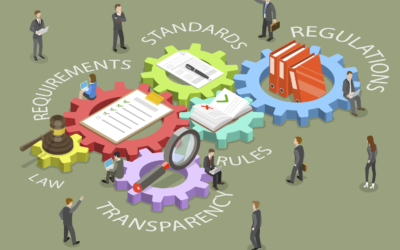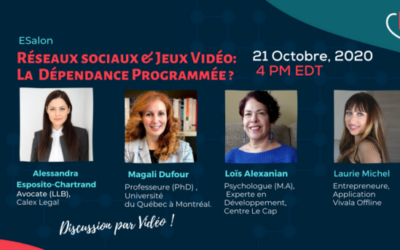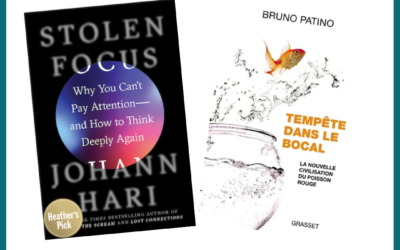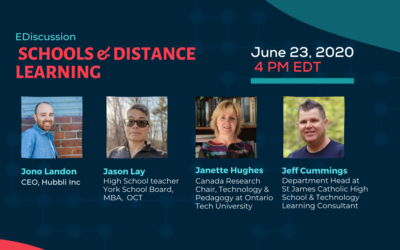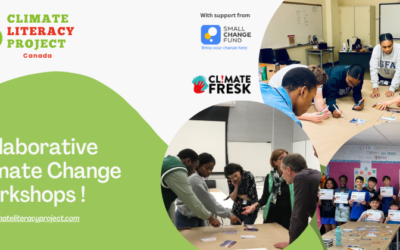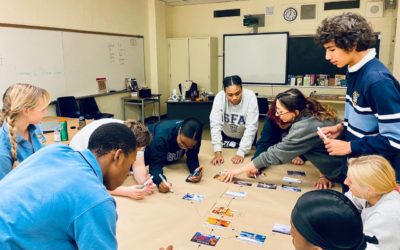Mia Dand is an instigator. She has created an important platform in AI Ethics that has proven crucial in the times we currently live. Her most recent event, Women in AI Ethics Annual Conference brought together important voices in the current state of diversity in ethics and AI.
Founded in 2018, 100 Brilliant Women in AI Ethics (WAIE) list has cultivated an engaged community and has created an emergence of women in research, technology, culture, business – spanning across the globe. What has emanated are the stories and lessons from their important works that have spilled into the mainstream.
Disclosure: I have known Mia for the last two years and have been involved in WAIE as a council member and I have followed her and the communities she curated in AI Ethics on Facebook and Twitter. She is unwavering, and unapologetic in her views on many of these critical issues.
I sat down with Mia Dand as she was putting this conference together. This is her story.
Q: Many people know of Mia Dand and what you’ve accomplished but how many people know Mia, the person? Please tell me about yourself.
Thank you, Hessie! Here’s the short version of my journey from Mumbai (Bombay) to Silicon Valley. I immigrated over 20years ago from a poor neighborhood in India’s most populous city to a suburb in the United States.
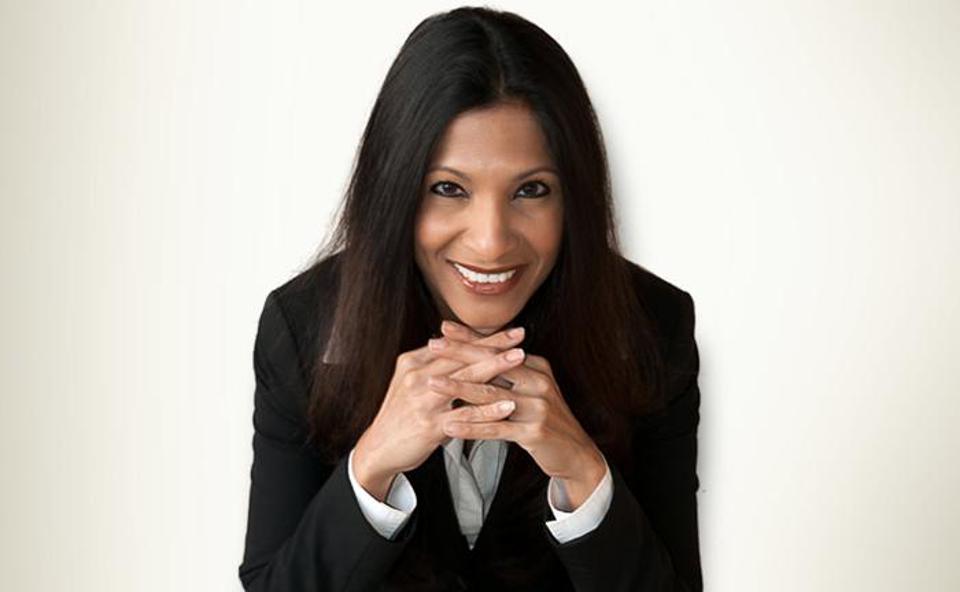
In the AI Ethics circles, we rarely mention poverty or classism, or how it severely limits viable choices and opportunities for women. My parents weren’t highly educated, didn’t have money for a computer, could barely afford to pay for my college and nor was it a priority. I was “bred to breed”, had an arranged marriage, and moved to the United States.
It took me a while to figure out what to do with my life. I went back to school and was grateful to get a scholarship, which made it affordable. I never dreamt that it was an option for someone like me. Here’s another fun fact – I was pregnant when I started business school so I graduated with a MBA and a baby!
Q: Your company is Lighthouse3. It serves an important function for the work you do today. What motivated you to start this company?
Over the years, I’ve worked for many big tech companies in a hybrid role – helping them adopt new technologies internally while also helping them market their own products externally. It was brutal with long work hours and took a heavy toll on my personal life.
There are 2 things you hear frequently in the valley, “Move fast and break things” and “It’s not like we’re saving babies”. Six years back, my mom passed away and I started questioning that philosophy, “Why aren’t we saving babies? What could be more important?”
As some have recently come to realize during this pandemic, the corporate world is not designed for working mothers unless you have a support system of nannies and family members to help raise your children. I didn’t have that luxury. I ended up leaving the corporate world and launched Lighthouse3, a strategic research and consulting firm that helps global companies with responsible innovation at scale. I love lighthouses and it’s the perfect metaphor for my work – someone who shines a bright light on murky issues and brings folks safely to shore.
Q: You started Women in AI Ethics (WAIE) a few years ago? What was your motivation?
My dad passed away in 2018. He was a special person who devoted most of his life helping others and our tiny home was open to anyone in need. I was devastated so I opened a bottle of wine and was doomscrolling when I stumbled across a Twitter thread about a list I had published earlier that year “12 Amazing Women in AI Ethics.” Some folks thought my list was biased in favor of women in the U.S. Their critique spurred me to find out who else was working in this space.
The women I found were very inspiring and I kept going long after the wine was over. It became my passion project. When I reached 100, I reluctantly hit publish. That’s how the 100 Brilliant Women in AI Ethics list was born. Since then, this list has evolved into an initiative, we built a WAIE directory to recognize more women in this space, launched an AI Ethics mentoring program for women and non-binary folks and hosted events/webinars, book chats with BIPOC authors, twitter chats with experts – all with one single purpose, which is to increase recognition and representation of brilliant women in this space.
In my small way, I am continuing my dad’s legacy of helping others and creating a space/platform for amazing women.
Q: The category of AI and Ethics is enormous and the implications across human rights, sustainability, privacy, fairness, etc. are massive. What has been your objective in covering these categories?
AI is a vast field and we’ve barely scratched the surface when it comes to ethical issues. Last year, we introduced an AI Ethics model with 6 dimensions:
- Roles + Rights
- Society + Sustainability
- Privacy + Data Rights,
- Fairness + Accountability
- Commercial Systems + Safety
- Digital + Physical Safety
… to reflect the wide range of ethical issues in AI including impact on society as ethically developed AI can still have unethical outcomes and be weaponized against marginalized groups.
We cannot have a meaningful discussion about the ethics of AI without including marginalized and underrepresented groups in these critical conversations.
Q: Through this journey, you’ve met some spectacular women along the way. Please tell me about some of them
I am incredibly grateful for the supportive women in my life, many of whom I met through the WAIE network – yourself, Rediet Abebe who does so much for the community and introduced me to Dina Machuve; Timnit Gebru and Kay Firth Butterfield who are speaking at our event; Safiya Noble and Meredith Broussard who were guests on our AI Ethics Twitter Book Chat, and many other incredible women in our WAIE Collective, women who signed up to be mentors, our Advisory board, and allies. I am thankful for Rae Dand and Maya Gota who do an amazing job in running our highly successful mentoring program. It’s the generosity of our community that keeps me motivated and helps us move the initiative forward.
Q: What were some of the things you’ve learned about AI and Ethics along the way? Was it what you had expected?
I’ve learned that folks have this irrational belief that diversity and ethics in AI are two separate and unrelated issues. We need to change that. There are many talented women in the Black, Indigenous, and Asian communities who are not on Twitter but doing important work in this space. We need to look beyond social channels and include these women in our events and recruit them for leadership roles.
We can’t talk about ethical AI and then exclude most of humanity from these critical conversations. I have also learned that meaningful progress on the critical issues of our time depends on people with privilege and power who are willing to take action even if they are not directly impacted by these issues.
Q: Since the time you started you’ve gained enormous momentum for WAIE and you’ve given hundreds of women much bigger platforms to connect and tell their stories, and make a difference. Was the time ripe for this?
I’ve hosted emerging tech events in the San Francisco Bay Area for over a decade now and always used a diversity-first approach when recruiting speakers, which is why 80-90% of our speakers are either women or people of color. It’s all about being intentional about including underrepresented voices.
The Black Lives Matter protests are a sign that it’s about time we took racial justice seriously and not dismiss it as “politics”. I am disappointed by some of the performative activism by well-known folks in this space. Black Instagram squares and tweets alone will not change things. Tweets are not a substitute for deeds.
Lack of representation of BIPOC (Black, Indigenous, People of Color) in AI is not a coincidence and this is not a pipeline issue. We need to be intentional about inclusion, change our definition of talent so it’s not biased in favor of white men, and take concrete action to promote diversity in AI.
Q: This year was a catalyst of change for you? How did it affect how you pivoted your business and WAIE?
It has been a very challenging year, personally and professionally. I’ve been dealing with yet another death in my family. In addition, recently I was horrified to discover that my work in diversity was appropriated without permission to promote an all-white women’s event. What’s more disturbing is that many folks in the AI Ethics community didn’t see this as an issue despite their tweets and statements in support of the BLM movement.
This incident became the catalyst for revising our WAIE mission and in July 2020, we reaffirmed our commitment to diversity & ethics in AI by assuming an advocacy role as staying neutral in times of social and racial injustice is ethically and morally reprehensible.
Towards that end, we will center the experiences of marginalized and underrepresented groups in all our work and actively speak up against discriminatory and exclusionary practices.
The global pandemic, police brutality, wildfires that have scorched 1 million acres across California and displaced hundreds – have taken an emotional and mental toll on all of us, which we haven’t fully grasped nor acknowledged. It is time to double down on our commitments to help others less fortunate and look out for each other.
Q: And now you are launching the very first WAIE conference. Please tell me about it.
I am very excited to announce our very first Women in AI Ethics annual event (WAIE 2020) on August 27th. With over 20 sessions on diversity and ethics in AI, 35+ speakers from over 15 countries, this event will bring various dimensions of diversity to life and show how they impact the ethics of AI.
For a long time, the AI Ethics narrative has been shaped by voices from male-dominated tech companies and elite institutions. Tech giants use their deep pockets to influence tech-friendly policies and research while prestigious institutions use their massive endowments, some raised from questionable sources, to control the narrative around AI Ethics while making only token gestures towards inclusion of BIPOC.
WAIE 2020 is part of my ongoing effort to create a more egalitarian space where every woman’s perspective on AI Ethics is welcome regardless of their background, affiliation, class, or privilege. We have built a community where women from marginalized communities are empowered to share their work and personal struggles in a supportive environment.
We want to inspire the audience to reimagine AI Ethics to include diverse voices of traditionally marginalized groups based on gender, race, ability, sexual orientation, socio-economic class, region, religion, and other.
Q. Where do you see things going in the next 5 years. Do you think Covid-19 and the events in spring will change things? What kind of impact do you hope to have?
I think 2020 may be the inflection point for AI Ethics and comeuppance for the techno-elites, including prestigious institutions who enable the racist, classist status quo.
COVID-19 has spurred much-needed conversations around the ethics and responsibility of tech companies towards their users, employees, and communities they operate in.
This is also a time when elite institutions making token PR-friendly gestures need to step up and support the marginalized communities with their massive endowments instead of posting PR statements while simultaneously slashing funding for minority and race studies.
I would urge everyone, when you see something wrong, say something. Also, take the pledge to not attend all-male and all-white panels.
Q: The most recent events in Kenosha with the shooting of Jacob Blake continues to sound an alarm about racial injustice and the continued systemic injustices that persist. What are your thoughts on this?
Systemic racism in America is enforced by the police. It’s time to STOP funding guns and start investing in Black and marginalized communities. Empower them to tell their own stories and give them a seat at the table.
Sometimes we underestimate our own privilege and collective power. When it comes to racial justice, we need more deeds, not just tweets!
Unapologetic. Unwavering. Determined. Perhaps it was fortuitous and exactly the right remedy we desperately need today but Mia Dand has spearheaded a community that has become an active beacon of change and hope, and accomplishment and most importantly, perseverance in the face of mounting obstacles. Mia has given voice to women and encouraged all of us to do the same in an important era of technological advancement and upheaval.


